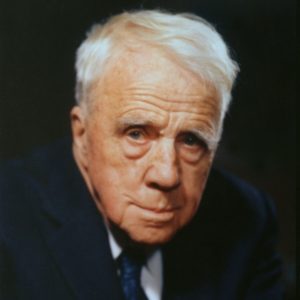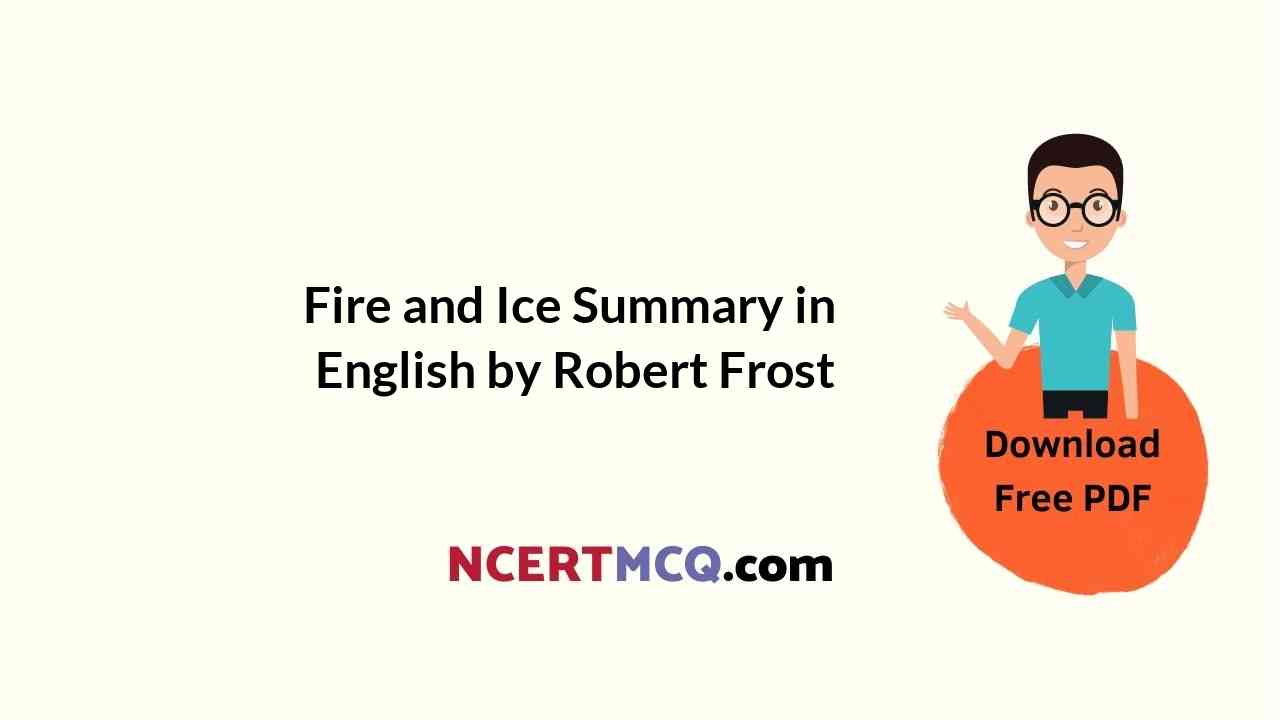We have decided to create the most comprehensive English Summary that will help students with learning and understanding. https://ncertmcq.com/english-summaries/
Fire and Ice Summary in English by Robert Frost
Fire and Ice by Robert Frost About the Poet
Robert Frost (1874-1963) was an American poet. His work was initially published in England before it was published in the United States. Known for his realistic depictions of rural life and his command of American. He became one of the United States rare “public literary figures, almost an artistic institution.”
| Poet Name | Robert Frost |
| Born | 26 March 1874, San Francisco, California, United States |
| Died | 29 January 1963, Boston, Massachusetts, United States |
| Poems | The Road Not Taken, The Gift Outright, Nothing Gold Can Stay |
| Awards | Robert Frost Medal, Pulitzer Prize for Poetry |

Fire and Ice Summary in English
The poet says that there are two theories held by the general public about how the world will come to an end. The first of these theories states that fire will cause the apocalypse to happen. The second theory say’s the world will freeze till all the species of flora and fauna inhabiting it become extinct once and for all. The poet equates fire with human passion and desire. He also says that he is quite familiar with this concept of desire, and know’s what it actions is capable of producing in human beings. The poet agrees with those people who believe that the world will be burnt in fire.
But he has also experienced the other extreme, and he know’s that colder emotions like hate have great destructive power. Love gets all .the publicity, but hate is the silent killer. It may not have the same grandeur as the fireball ending, but it’ll do the trick.
Fire and Ice Summary Questions and Answers
I. Some say the world will end in fire
Some say in ice.
From what I’ve tasted of desire
I hold with those who favour fire.
a. According to some people how will the world end In fire?
Answer:
‘Fire’ here stand’s for hatred, cruelty, fury and avarice that some people feel the world will end in.
b. How will it end in ice?
Answer:
‘Ice’ stand’s for insensitivity, coldness and intolerance, which too can end the world.
c. Why does the poet side with those who believe that the world will end in fire?
Answer:
The poet’s taste of his own desires had made him side with those people who believe that the world will end in fire.
Summary Of The Poem Fire And Ice
2. Has given my heart
A change of mood
And saved some part
Of the day I had rued.
a. What type of mood the poet was in?
Answer:
The poet was in a depressed and distraught mood.
b. What does the poet say, has changed his mood?
Answer:
The poet’s mood has changed after a crow shook down on him a dust of snow fro MI a hemlock tree.
c. What was the result?
Answer:
His mood underwent a positive change.
d. What is the rhyme scheme in the stanza?
Answer:
The rhyme scheme in the stanza is “abab”.
Fire And Ice Short Summary
3. The way a crow
shook down on me
The dust of snow
From a hemlock tree.
a. What is the dust of snow?
Answer:
Dust of snow refers to the snow flakes.
b. Who shook it down?
Answer:
A crow shook it down.
c. What does ‘the dust of snow’ stand for?
Answer:
The dust of snow’ stands for hope and joy in the midst of sorrow and despair.
d. What is a hemlock tree?
Answer:
A hemlock tree is a poisonous plant with small white flowers.
4. To say that for destruction ice
Is also great.
Fire And Ice Summary Question 1.
For the poet, what does ‘ice’ stand for? How is it sufficient to bring destruction?
Answer:
For the poet, ‘ice’ stands for insensitivity and coldness, indifference and intolerance. These qualities are sufficient to bring destruction because they promote hatred amongst people and ultimately lead to destruction.
Fire And Ice Summary In English Question 2.
‘I think I know enough of hate ………..’
What does the poet mean by knowing enough of hate?
Answer:
The poet has also experienced hate, a cold emotion, and he know’s that it can destroy things – namely, the world.
